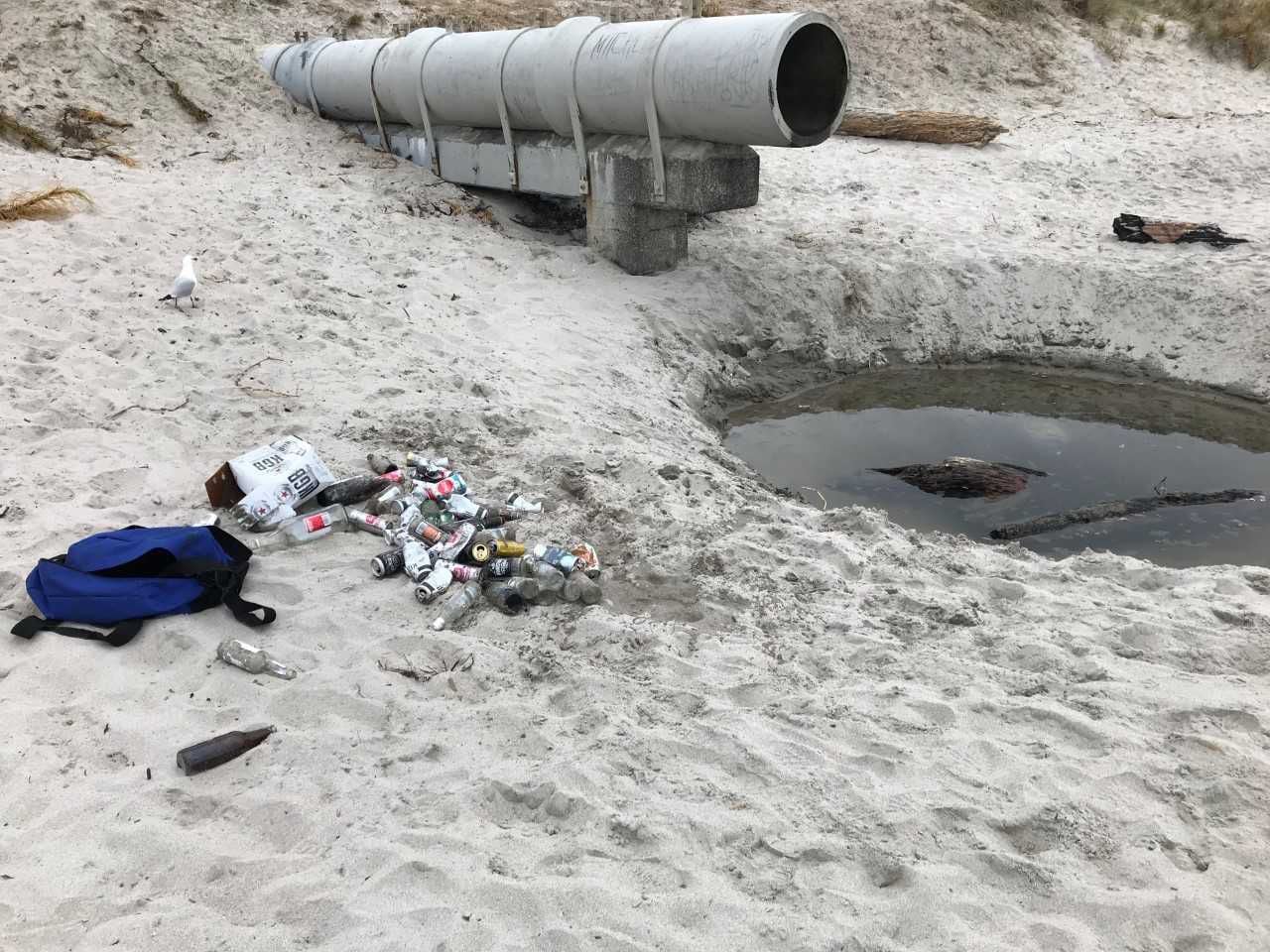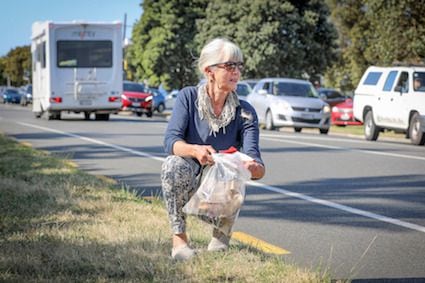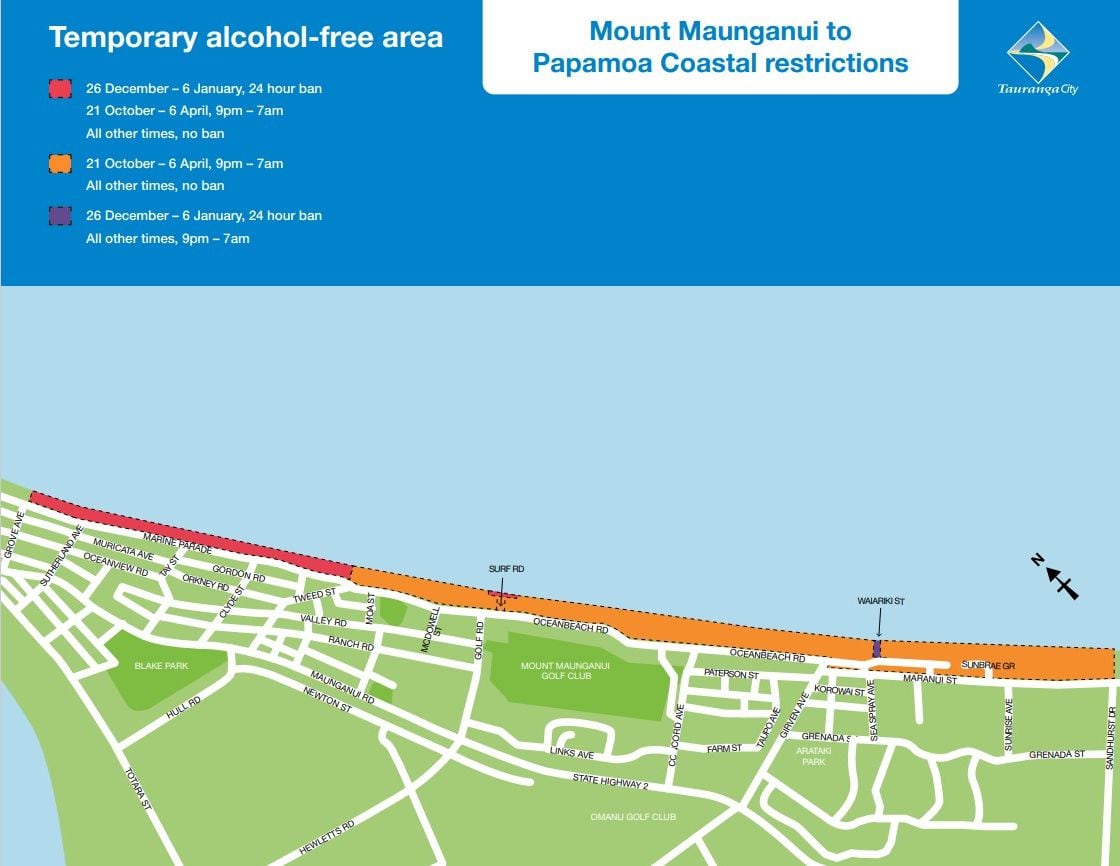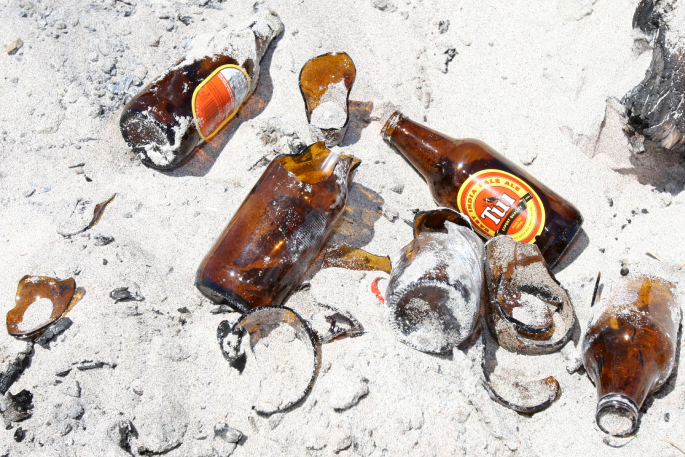Mount Maunganui locals say they are fed up with the rubbish and broken glass left by people partying on the beach and drinking outside their homes.
They are calling for more police enforcement and for alcohol-free zones to be extended in the beachside suburb.
John Tawharu, who lives near the intersection of Oceanbeach Rd and Marine Pde, said there had been groups drinking on the beach for years.
“All of us kaitiaki, all the surfers, all the community are picking up glass and broken glass and lots of it.”
It was frustrating because people were also having to put out bonfires still burning the next day and damage was being done to plants and trees in the sand dunes, Tawharu told a Tauranga City Council meeting on Monday.
The council heard from submitters about its decision to amend an alcohol bylaw.
An alcohol-free zone exists between 9pm and 7am from October 21 to April 6 at all reserves, beaches and public places on the seaward side of Marine Pde, from Grove Ave along Oceanbeach Rd and Maranui St to its intersection with Sandhurst Drive.
Every year since 2018 the council has had to approve this bylaw. At Monday’s meeting the council decided to make it permanent.
The council also agreed to consider consulting on making the area a permanent alcohol-free zone 24 hours a day, seven days a week in 2027, when the Local Alcohol Policy is reviewed.

Remnants of a beach party at Omanu Beach in 2020.
Tawharu said the beach parties happened throughout the year, not just Christmas and New Year.
“We know when there’s a big party going to happen because people are walking down there with trolleys full of wood.
“It used to be just a bit of broken glass that you can pick up, but that’s different now.
“For the last three years, we’ve had almost guaranteed damage to property, damage to cars, theft, and a house burglary.”
There was “fear and anxiety” from the community who were scared to respond to the issues, he said.
He said he wanted the bylaw to be communicated to people clearly and for police to respond to the issues earlier before they escalated.
“I know they’ve [the police] got issues with drugs and with car accidents and lots of other priorities, but we feel like we’ve been left out.
“It only becomes an issue and prioritised if there’s a point where someone’s going to get in danger.”

Su Hodkinson has been picking up litter along Maunganui Rd for years. Photo / Andrew Warner
Su Hodkinson lives near Bain St closer to the Mount CBD and is a self-described “litter womble”.
The well-known local has been collecting rubbish every morning along Maunganui Rd and the nearby streets for more than 50 years.
She told the meeting a lot of the rubbish was left by people drinking outside her home and the nearby McDonald’s and backpackers, although those areas had “really improved” lately.
Her recycling haul from Sunday included 72 cans, five glass bottles and 11 plastic bottles, Hodkinson said.
She agreed with the liquor ban amendment but questioned why the whole of Mount North from the CBD to Golf Rd wasn’t an alcohol-free area.
It was something she had raised with the council in the past, she said.
“These bylaws don’t go far enough.
“Alcohol is a real problem for Mount Maunganui, and I agree with what you’re doing, but it’s not enough.”

The Mount Maunganui to Pāpāmoa coastal alcohol restrictions. Image / Tauranga City Council
Mount Maunganui CBD and Tauranga CBD are two of nine permanent alcohol-free areas in the city.
Alcohol Health Watch executive director Andrew Galloway said evidence showed alcohol-free areas could help reduce crime and disorder.
“They can help de-normalise alcohol use [and] they are cost-effective.”
Council regulatory and compliance general manager Sarah Omundsen said the council consulted on the amendment in November 2024.
More than 200 submissions were received and 70% of those supported making the summer coastal ban permanent.
Included in the 30% against it were people who thought the ban was new and others who felt they should be able to have a glass of wine and watch the sunset at the beach, Omundsen said.
Councillor Steve Morris asked if the summer coastal ban could be changed to 365 days a year.

Tauranga City Council regulatory and compliance general manager Sarah Omundsen. Photo / Alex Cairns
Omundsen said this was outside what the council had consulted on and would need further consultation, so was better left until the Local Alcohol Policy was reviewed in 2027.
Councillor Rod Taylor said having listened to submitters, one of the “big issues” was enforcement of the bans.
He asked if the council could get “some traction” with police to help with the issues the community had raised.
Environmental regulation manager Nigel McGlone said he couldn’t speak on the police’s behalf, but he spent 10 years in the police as the Western Bay alcohol harm reduction officer.
“Policing is hard at the best of times [answering] all of those calls for service, but I know they do the best job they can.
“I can’t speak to how the current regime prioritise their calls for service, but the police are the enforcers of the liquor ban - that’s not a council function.”
In response to concerns raised at the meeting, a police spokesperson said they had regular discussions with the council about matters affecting the safety and wellbeing of the community.
“Regardless of whether bylaws are temporary or permanent, police work to enforce the law and keep our communities safe all day, every day.”
LDR is local body journalism co-funded by RNZ and NZ On Air.




3 comments
Existing rules are fine... When enforced
Posted on 13-02-2025 09:32 | By TSWIZZY89
"Councillor Rod Taylor said having listened to submitters, one of the “big issues” was enforcement of the bans"
Correct.
I visited the new $5,000,000 playground at The Strand earlier this month, along with the new 'play pod' at Red Square, with my young kids.
Already, there are tags, cigarette butts, alcohol cans, and apparently homeless people milling around...
The old playground was often covered in broken glass and was the target of arson at least twice.
There's lots of CCTV, but who's watching it? Who is enforcing the existing laws? Nobody, it seems.
Muppets
Posted on 13-02-2025 14:01 | By nug
Common sense really is not a common trait unfortunately....let's hope they don't reproduce
Ask yourself...
Posted on 14-02-2025 12:02 | By morepork
... what kind of person would think it is OK to litter up a beautiful natural treasure? Who would not care about glass on a pristine sandy beach? (Anyone who has ever seen little feet slashed and bleeding could not condone this...) The irrefutable conclusion is that it has to be people who have no responsibility or consideration for anyone but themselves. You can't legislate against selfishness and self-indulgence; the best you can do is make it illegal as a blanket ban to protect the area. NOBODY should have to be collecting broken glass off these beaches. (it should be possible to use tractors to do this?). It SHOULD be possible to have a glass of wine and watch the sunset; but the sad reality is that a small minority ruin it for all of us. Maybe beach parties could be by permit, with a registered person(s) responsible?
Leave a Comment
You must be logged in to make a comment.